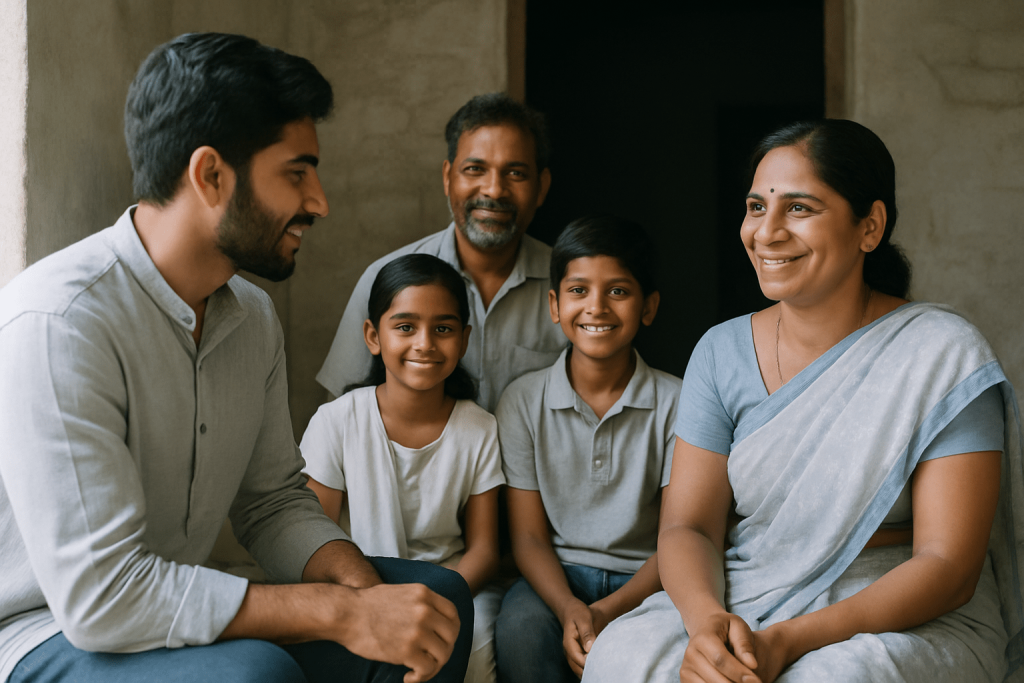I was very biased about my ideas on Rajasthan; Rajasthan always depicted an image of a desert, camels and a scorching bright sun. My ideas changed the moment I stepped in Udaipur and set my journey through Banswara district to Anandpuri block. The road that leads to Anandpuri was one that I would aspire to travel along endlessly. Both the sides of the road have breathtaking views. The vast undulating terrains, scattered tapras at a distance – that one can sketch of on a piece of paper. The verdant thorny vegetation and the tangerine sun added the perfect hues to a waning evening. I glued my eyes as long as I could without a blink and rolled through my mobile camera. I wish I could capture those images forever in my memory. The wild palm trees, mahua, acacia, eucalyptus, camel’s feet, subabool, mangoes etc. were lined along the ways.
I got more curious, and one day I ended up visiting the house along with one of my fellow group mates. We knocked at the half-open door, and a young boy turned up (probably less than ten years old). I could see that there was no one inside other than him, yet I asked if we could check with the elders of the house. He timidly pointed his index finger at the distance and said something in Waagdi, meaning maybe – they are working in the field. I asked him the stupidest question – do they sell mahua? The little boy looked blank and shook his head shoulder to shoulder, and I understood what he meant to say. I might have offended him.
We revisited him on our last day at Sarvai. That day again the boy was alone, I got little friendlier with him and did some appreciative inquiries. Later, with little hesitation, I told him that I want to buy mahua. The boy promptly asked me how many bottles I wanted to purchase. I literally got goosebumps seeing this young boy dealing with alcohol for the survival of his family at such a tender age. Alas!! What poverty can do to a family? What desperation might the family have, which lead to it as a coping up mechanism? Am I really concerned about the future of this little boy? What will happen to him the moment I leave him? What the future stores for him?
Today I am still carrying a picture of that little boy inside me, and there is something about it that bothers me. What about you?
N: B – Mahua liquor is prepared by collecting and fermenting mahua blooms from Mahua trees. Preparation and consumption of Mahua liquor in a tribal society is a part of the culture and is very common. But few societies are prohibiting and limiting it to responsible drinking because of its adverse effect on society. The adulteration of Mahua liquor with toxic additives is leading to fatal health issues and death. Other issues are domestic violence and various crimes.
The author is a student of 2nd batch of PGP in Development Leadership at ISDM
Source: https://www.youthkiawaaz.com/2019/02/stories-from-the-field-the-little-boy/




